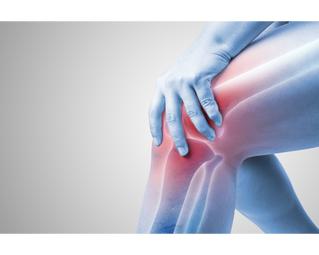 Osteoarthritis, the most prevalent form of arthritis, results from joint inflammation and deterioration, often affecting weight-bearing joints like hips and knees. However, other joints such as the spine and shoulders can also be impacted. This condition can disrupt daily activities, prompting individuals to seek relief from a physiotherapist. These experts possess in-depth knowledge of osteoarthritis and its complications, enabling them to recommend treatments that enhance joint mobility and alleviate pain. Engaging in simple physical activities like walking, swimming, or biking can be beneficial, potentially aiding weight loss and promoting a healthier lifestyle. This is particularly valuable, as obesity is sometimes linked to this ailment.  Essential to joint health is cartilage, a rubbery substance that cushions bone ends, reducing friction during movement. Synovial fluid further facilitates smooth joint motion. Deterioration of these protective elements results in bone-on-bone contact and subsequent pain. Although the exact cause of osteoarthritis remains unclear, aging, genetics, past injuries, obesity, and repetitive movements are thought to contribute. Symptoms encompass stiffness, pain, and joint noises, while swelling and redness are less common. Diagnosis typically involves X-rays, although a proficient physical therapist can often identify osteoarthritis without them. Physiotherapy serves as a prominent treatment option. It can mitigate the need for surgery by addressing individual symptoms and crafting personalized exercise routines. Strengthening exercises and aerobics enhance overall well-being, while hands-on therapies like massage may be employed. Preventing osteoarthritis entirely is not always possible, making therapy crucial for managing its progression and embracing a healthy lifestyle. Muscle strengthening and proper movement techniques help reduce joint stress. Therapy aims to alleviate pain while enhancing movement, flexibility, and strength. Collaborating with healthcare professionals ensures a comprehensive approach to managing osteoarthritis.
0 Comments
Due to the state of emergency of BC and in the best interest of public health and safety we have decided to postpone in-clinic consultations at KinCoast Physiotherapy until April 1st.
In order to provide ongoing support and continued patient care we will be providing online virtual consultations for new and existing KinCoast clients. This service will be provided through the PhysiApp software which can be downloaded for free through Android and Apple app stores. "Physiotherapists play a role in maintaining function, flexibility, strength and mobility while mitigating secondary complications from isolation conditions such as muscle wasting, weakness due to deconditioning and negative effects on psychological well-being" -Canadian Physiotherapy Association - March 2020 Sessions will be one on one and will mimic in-clinic sessions to work with you while adapting the home environment into your therapy. This would allow us to continue to assess your progress, strategize ways to treat and manage symptoms, and progress strengthening exercises from the comfort of your own home. If you are interested, have any questions, or are wondering if this is right for you, please don't hesitate to contact us at [email protected] or call/ text 604-441-3538. Stay safe and happy quarantining. What led you to physiotherapy?
My many sporting injuries, including shoulder dislocations and reconstruction surgery which ended up stopping my early career in Rugby Union in my home country of Australia. These events taught me the importance of proper rehabilitation. What is your favourite part of being a physiotherapist? Honestly, as corny as it sounds, connecting and helping people regain their function and reach their goals. How do you treat injuries? I treat based on how the client presents, and everyone is different. Overall, I treat not just the injury but the body as a whole. Initially, I will be more hands on using manual therapy to help restore range of motion. After pain is under control we progress into active movements, strength based approach, and patient empowerment. I like to explain what I am doing and why it is important. I think education is key to successful recovery and prevention of future injuries. What do you think is the biggest misconception about physiotherapy? Probably that physiotherapists just use machines and heat packs to treat you. Sometimes these are good additions to treatment, but they shouldn't be all of it. A combination of exercise prescription, manual therapy, and load management is the key to successful rehab and has more evidence backed behind it than passive treatments where the patient is uninvolved. Why did you move to Canada? My wife. This is her hometown, she graduated from Port Moody Seconday. We moved back because her parents were ill at the time. What has been your biggest challenge in Canada? My Aussie accent! Making people understand me, that's for sure. Tell us a little about yourself. I moved house heaps when I was young (Canadian translation: I moved around a lot when I was young). My elderly dog child is also from Australia, I got her from the RSPCA when I was a teen. Her name is Jess and she has been my trusty side kick ever since. You might see her around in the clinic, she is very friendly. I'm partial to video games, but I also like to get outdoors and hike a mountain, or get stuck in some snow in the winter. |

 RSS Feed
RSS Feed